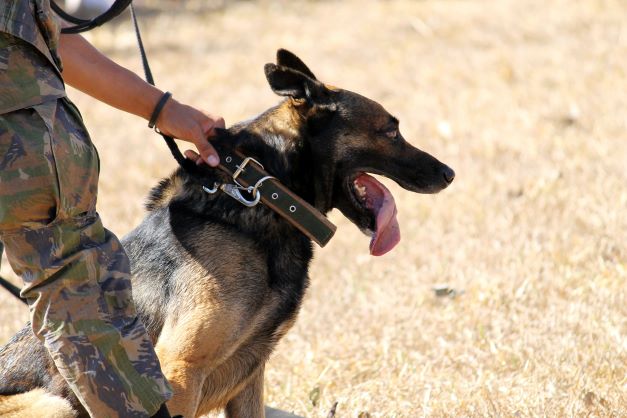
|
Over the weekend, I saw the comedy-drama film Dog, Channing Tatum’s directorial debut. The movie follows the road trip of U.S. Army Ranger Briggs and Lulu, a retired military working dog. Briggs is charged with transporting Lulu from Washington to Arizona to attend the funeral of her handler, another Army Ranger who committed suicide.
Throughout the film, we witnessed Briggs struggling with post-traumatic stress disorder and an inability to make emotional connections. But during their wild adventure together, Lulu helps him make peace with his life. It was entertaining, amusing, and poignant. And by the end, I was heart-wrenchingly reminded of the plight of our soldiers who suffer from PTSD, and I got a glimpse into the world of military working dogs. I was eager to do something or get involved, even ready to adopt a retired dog. But when the movie ended, only the credits rolled. There was no information about where to learn more or how I could make a difference. Of course, I could have googled it. And granted, this movie was not a documentary or a public service announcement. In fact, Channing Tatum made this movie as a tribute to his dog Lulu who died from cancer in 2018. But… there was a missed opportunity. The movie invited me to imagine a different outcome for soldiers who suffer and retired military dogs. It inspired me to want to do something. But then it forgot to invite me to take action. We often tend to overlook and overcomplicate opportunities to engage and collaborate. Why?
But sparking collaboration can be straightforward and engaging:
Dr. Paul Farmer, who passed away this week, was a champion of global health equity. In an interview with Wired in 2013, Dr. Farmer said, “We have to design a health delivery system by actually talking to people and asking, ‘What would make this service better for you?‘” Imagine. Inspire. Involve. © 2022. Ann Tardy and MentorLead. www.mentorlead.com. All Rights Reserved. |
